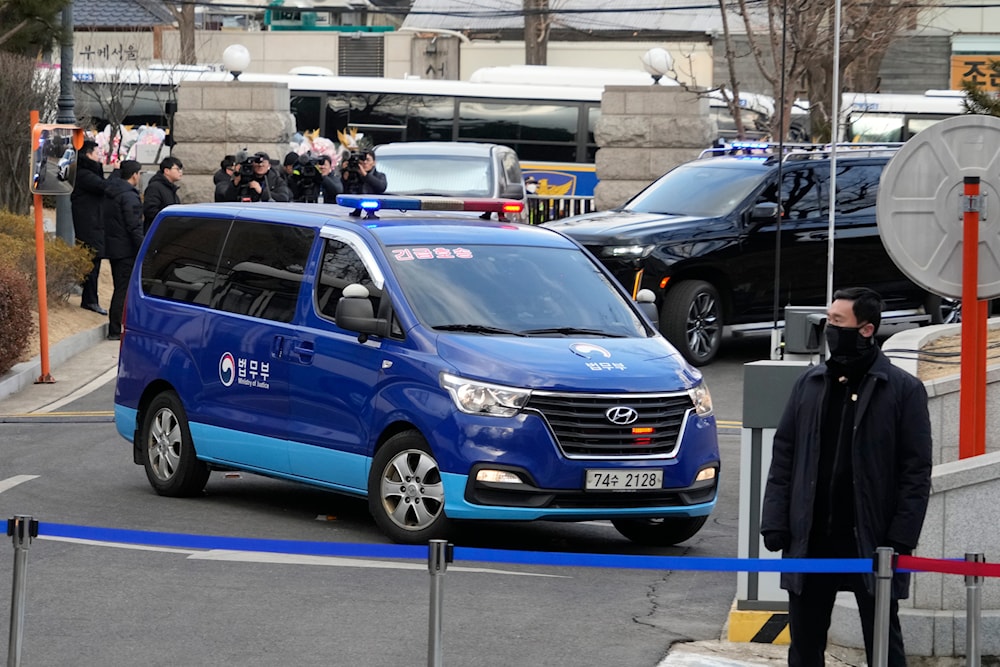South Korea's Yoon faces last impeachment hearing over martial law
South Korea's ousted President Yoon Suk Yeol is attending his final impeachment hearing on Tuesday, as judges prepare to decide on his removal over his controversial martial law declaration.
-

A blue van carrying impeached South Korean President Yoon Suk Yeol arrives at the Constitutional Court in Seoul, South Korea, on February 25, 2025. (AP)
Former South Korean President Yoon Suk Yeol appeared for his final impeachment hearing on Tuesday, where judges will decide whether he should be formally removed from office over his controversial martial law declaration.
Yoon's brief suspension of civilian rule triggered political turmoil in democratic South Korea, leading to his ousting by parliament in December.
Following weeks of intense impeachment hearings at the Constitutional Court in Seoul, Tuesday’s session began at 2:00 pm (05:00 GMT), but Yoon was not present, as reported by an AFP journalist in the courtroom.
In their opening statements, Yoon's defense team cited the 2024 US Supreme Court ruling, Donald Trump v. the United States, arguing that the ousted president should not face punishment for "exercising his core constitutional powers."
Yoon's lawyer, Lee Dong-chan, stated that this ruling "should be taken into account in the context of impeachment proceedings."
Thursday's session, February 27, will be Yoon's final appearance before the eight judges deliberate behind closed doors to determine his fate.
Several lawmakers from his ruling People Power Party were present at the session.
Yoon is expected to give a closing statement in his defense, while parliament representatives will have the opportunity to argue for his removal. Outside the court, pro-Yoon protesters chanted "Drop impeachment!"
It is worth mentioning that a verdict is widely expected in mid-March.
'First sitting leader on criminal trial'
Yoon Suk Yeol is the first leader in the country's history to face a criminal trial after court proceedings started on February 20 over his attempt to impose martial law.
It is worth noting that the 64-year-old former prosecutor has been behind bars since his arrest in January on insurrection charges, which could lead to a life sentence or even the death penalty if convicted. His trial began at Seoul’s central district court.
Prosecutors labeled Yoon the “ringleader of an insurrection,” while his legal team argues that the investigation was initially flawed. His lawyers insist that declaring martial law was within his authority as head of state and have challenged the validity of his indictment.
Meanwhile, South Korea’s constitutional court is deliberating on whether to officially remove Yoon from office following his impeachment by parliament in December.
Among those called to testify at the constitutional court are Han Duck-soo, who was also impeached as acting president after Yoon’s removal, and former senior intelligence official Hong Jang-won. Additionally, Cho Ji-ho, the national police agency chief, who is also facing insurrection charges over the martial law decree, has been summoned as a witness.

 3 Min Read
3 Min Read










